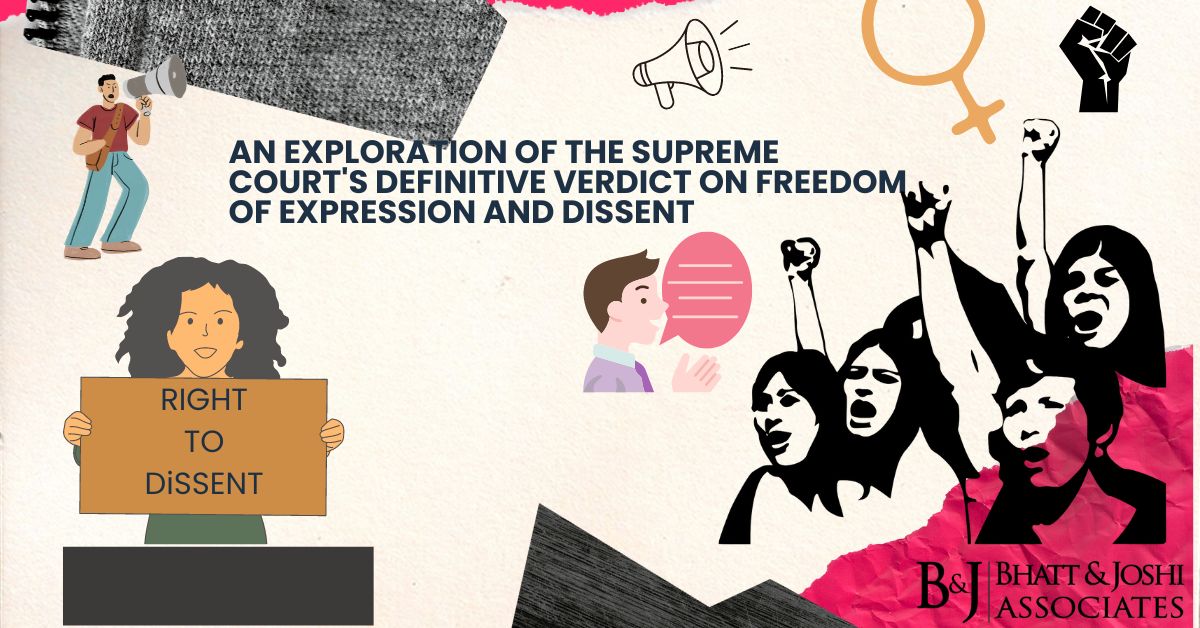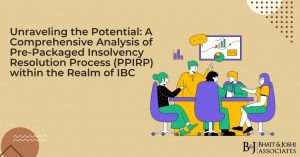Freedom of Expression and Dissent: An Exploration of the Supreme Court’s Definitive Verdict
Background: Quashing Section 153A Charges
In a historic and landmark ruling on March 7, the Supreme Court of India took a firm and resolute stand by quashing a criminal case against Professor Javed Ahmed Hajam. The esteemed professor had expressed dissent against the abrogation of Article 370 in the region of Jammu and Kashmir, vividly describing the day of abrogation as a ‘Black Day.’ The significance of this judgment extends beyond a mere legal verdict; it delves deep into the heart of democratic principles, especially the critical facets of freedom of expression and dissent, both of which are intrinsic to the constitutional ethos of India. The crux of this legal saga revolves around Professor Javed Ahmed Hajam, who found himself embroiled in legal intricacies as the Maharashtra Police registered a case under Section 153A of the Indian Penal Code. This specific section deals with the promotion of communal disharmony, and the charges were primarily based on WhatsApp messages wherein Professor Hajam criticized the abrogation of Article 370. However, the Supreme Court, in its far-reaching ruling, not only questioned the validity of these charges but also underscored the foundational significance of the right to freedom of speech and expression, a cornerstone of the Indian Constitution.
Legal Analysis: Safeguarding Freedom of Expression
The decision, meticulously articulated by Justices Abhay S Oka and Ujjal Bhuyan, meticulously delves into the core of the WhatsApp messages that became the epicenter of the legal maelstrom. The court unambiguously acknowledged Professor Hajam’s right to critique the abrogation of Article 370, emphasizing that expressions of protest and anguish, including the characterization of the day as a ‘Black Day,’ fall squarely within the ambit of protected forms of dissent. This ruling stands as a robust affirmation of the court’s unwavering commitment to safeguarding the principles of democracy, an essential tenet of the Indian Constitution.
Interpretation of WhatsApp Messages: Context and Intention
Integral to the court’s comprehensive analysis was a careful examination of the context and intention behind the WhatsApp messages in question. The statement designating August 5 as a ‘Black Day’ for Jammu and Kashmir was interpreted as a critique of the abrogation of Article 370, reflecting the appellant’s discontent with the decision. The court, cognizant of the constitutional significance of the abrogation, concluded that Professor Hajam’s critical analysis was well within the bounds of freedom of speech and expression.
Reaffirmation of Freedom of Expression Through Judicial Review
The resounding verdict from the Supreme Court echoes the pivotal role of dissent in a vibrant democracy. It emphatically underscores that citizens not only possess the right to express disagreement with state actions but also that characterizing a specific day as a ‘Black Day’ constitutes a form of ‘protest and anguish’ rather than an attempt to incite hatred. The court emphasized that the Constitution unequivocally guarantees the freedom to criticize decisions of the state, thereby reaffirming the foundational principles of democratic values.
Impact on Reasonable Individuals: Rejecting Concerns of Disharmony
Addressing concerns raised by the High Court regarding the potential promotion of disharmony, the Supreme Court categorically rejected the notion of assessing impact based on ‘weak minds.’ Instead, it advocated evaluating expressions of dissent based on the reasonable person metric, emphasizing that the impact on reasonable individuals is the quintessential factor. The court argued that India, as a democratic republic for over 75 years, comprehends the paramount importance of democratic values, and the test should be applied to the general impact on reasonable people.
Second WhatsApp Message: Independence Day Wishes to Pakistan
The court also delved into the second WhatsApp message, wherein Professor Hajam extended wishes to Pakistan on its Independence Day. In consonance with the High Court’s view, the Supreme Court held that such an act does not attract penal consequences under Section 153A. The court emphatically stated that citizens have the unassailable right to extend good wishes to other countries, asserting that motives cannot be attributed solely based on religious affiliation.
Conclusion: Protecting Freedom of Expression in Critique and Celebration
In the denouement of this legal odyssey, the Supreme Court’s verdict stands as a lighthouse guiding the protection of freedom of expression. By unequivocally quashing charges against Professor Hajam, the court sends a resounding message – criticizing state actions and expressing opinions on matters of public importance are not only integral to the democratic fabric but are also constitutionally safeguarded. The ruling underscores the profound significance of dissent in a democracy, reaffirming constitutional values and ensuring that citizens can freely articulate their views without the specter of legal repercussions. This case sets a monumental precedent, emphatically underscoring the court’s unwavering commitment to upholding the principles enshrined in the Constitution.










